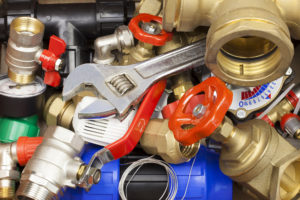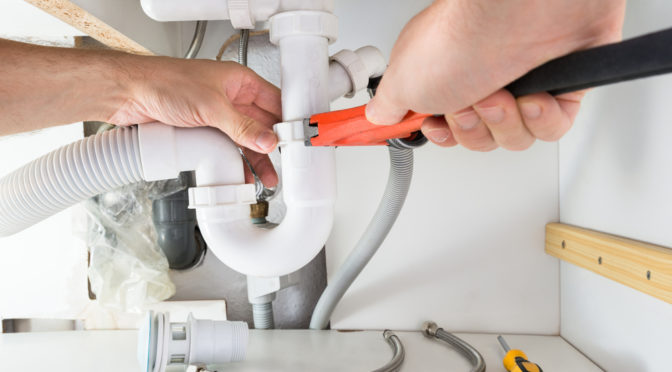Fast Tips for Plumbing Emergencies: Actions to Follow Until A Plumber Arrives
Fast Tips for Plumbing Emergencies: Actions to Follow Until A Plumber Arrives
Blog Article
Have you been searching for facts and techniques concerning Expert Tips for Emergency Plumbing Repairs?

Plumbing emergencies can strike at any time, causing stress and potential damages to your home. Whether it's a ruptured pipeline, a blocked drain, or a leaky faucet, recognizing just how to take care of the circumstance up until a professional plumbing professional shows up can conserve you from more issues. This short article offers necessary emergency situation plumbing tips to aid you alleviate damage and regain control throughout a pipes crisis.
Turn Off the Water
The primary step in any pipes emergency situation is to turn off the water supply. For local issues, such as a dripping faucet or toilet, switch off the valve near the component. In the case of a major leakage or burst pipeline, find your home's main water shut-off shutoff and transform it off instantly. Recognizing the place of these shutoffs in advance can conserve useful time throughout an emergency.
Address Tiny Leaks with Temporary Repairs
Tiny leakages can swiftly come to be considerable troubles if left untreated. Make use of these momentary fixes until specialist assistance arrives:
While these fixes aren't irreversible, they can assist minimize water loss and damages.
Unclog Drains Securely
A clogged up drain can be an irritating and untidy issue. Right here's just how to tackle it:
If these techniques do not function, stay clear of utilizing too much force, as it may get worse the blockage.
Handle Overflowing Toilets
An overruning toilet can trigger prompt mayhem. Right here's what you should do:
Shut Off Your Water Heater
In certain emergencies, such as a burst pipeline, it's important to shut down your hot water heater. This protects against getting too hot or damages to the device when water quits moving. Switch off the power supply to the water heater (electric or gas) and let it cool down to avoid potential hazards.
Temporarily Quit a Ruptured Pipeline
A ruptured pipeline can cause considerable water damages in mins. To alleviate the problem:
Call a professional plumbing professional quickly to resolve the issue permanently.
Handle Frozen Piping Meticulously
In chillier climates, frozen pipes are a common emergency situation. If you presume a frozen pipe:
Avoid Further Damage
Taking fast action to decrease damage can conserve you time and money in the future. Right here's how:
. Have an Emergency Situation Plumbing Package
Prepare a basic pipes emergency set to handle small issues effectively. Your set should include:
Having these devices available can make a substantial difference in your ability to take care of emergencies.
Know When to Call an Expert.
While quick fixes can aid temporarily, specific pipes issues need prompt professional attention. Call a plumbing technician if:.
Quickly calling a specialist ensures the issue is solved appropriately and prevents more difficulties.
Conclusion.
Plumbing emergencies can be frustrating, yet with the appropriate understanding and tools, you can handle the scenario properly until aid arrives. By shutting off the water, dealing with tiny leaks, and utilizing short-lived fixes, you can lessen damages and keep your home safe. Remember, these ideas are temporary services; constantly consult a certified plumbing technician to deal with the source of the issue. Prep work and fast reasoning are your best allies in any plumbing emergency.
8 Helpful Tips for Managing Plumbing Emergencies at Home
If your plumbing system hasn’t failed once, wait for it because almost everyone has a story to tell. Sometimes, it could be simple emergencies such as a leaking pipe, a blocked cistern, or even a big burst pipe. In situations like this, you need to have some handy tips to save you some money and from possible damages.
Take care of minor issues early.
Sometimes, you could have avoided an emergency by taking proactive measures while it was still early. Some major plumbing emergencies can be a result of an ignored minor issue. We recommend that you have items like plumbing tapes and other related items. A plumbing tape can allow you to manage minor leaks before the plumber arrives.
Cut off the water supply.
This tip is essential in almost any type of leakage problem. For problems like minor leakages in the toilet or kitchen, turn off the supply that takes water to the affected pipes. If the leakage is a major pipe, you must shut off the supply valve to the entire building. This will help you avoid flooding your home and neighbors if you share a flat.
Know your plumbing system
Folks typically move into a new apartment without understanding the water supply around the building. This can prove disastrous if a water emergency arises and the plumber is far away. The previous tip will prove useless if you don’t practice this one. More importantly, know where your water shut-off valve is located – you’ll need that knowledge to prevent potential home floods.
Have some common handy tools
There are lots of plumbing emergencies that you can handle without hiring a plumber. That’s why you must keep some tools available always. Some tools that you can use to fix simple plumbing emergencies easily include plumbing tapes, screwdrivers, thread seal tapes, plungers, pliers, tape measures, and rubber gloves.
Insulate your pipes from cold
You’ll save yourself from many plumbing expenses if you protect your water pipes from the cold. This is because of the harmful effects that cold weather can have on your pipes. During winter, your pipes can burst from being overly expected to freezing temperatures. So, make sure insulators are there to keep the pipes working correctly.
Avoid practices that will clog your toilet.
Many people indulge in practices that can damage the plumbing system of the entire building. One of these is when they use their toilet to dispose-off garbage. They flush all kinds of things, such as paper towels, bandages, hairs, female sanitary products, etc., down the toilet. This will block your toilet in the long run, incurring unnecessary expenditures. Dump such waste in the trash instead.
Check your dials regularly.
Sometimes, there could be leakages in your home without noticing them in time. So, constantly monitor your water meter dial. If the dial is reading when there is nobody using water, this is an indicator that there is leaking. Check for leaks immediately. Call a plumber as soon as possible if you can’t find any.
https://www.constructionplacements.com/8-helpful-tips-for-managing-plumbing-emergencies-at-home/

I discovered that blog entry about Expert Tips for Emergency Plumbing Repairs while surfing around the web. Sharing is caring. Who knows, you may just be helping someone out. Kudos for your time. Revisit us soon.
Go Deal Report this page